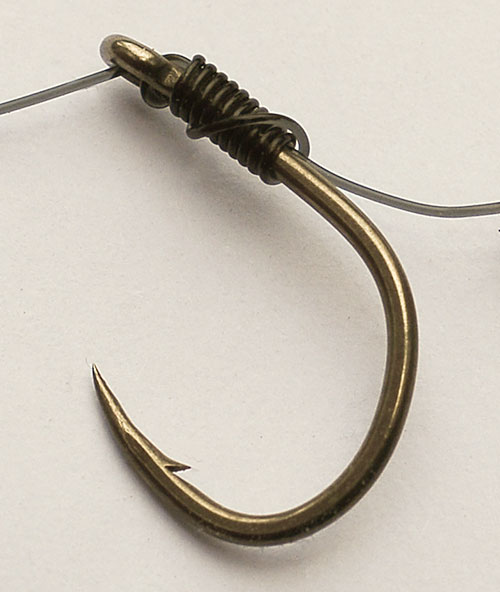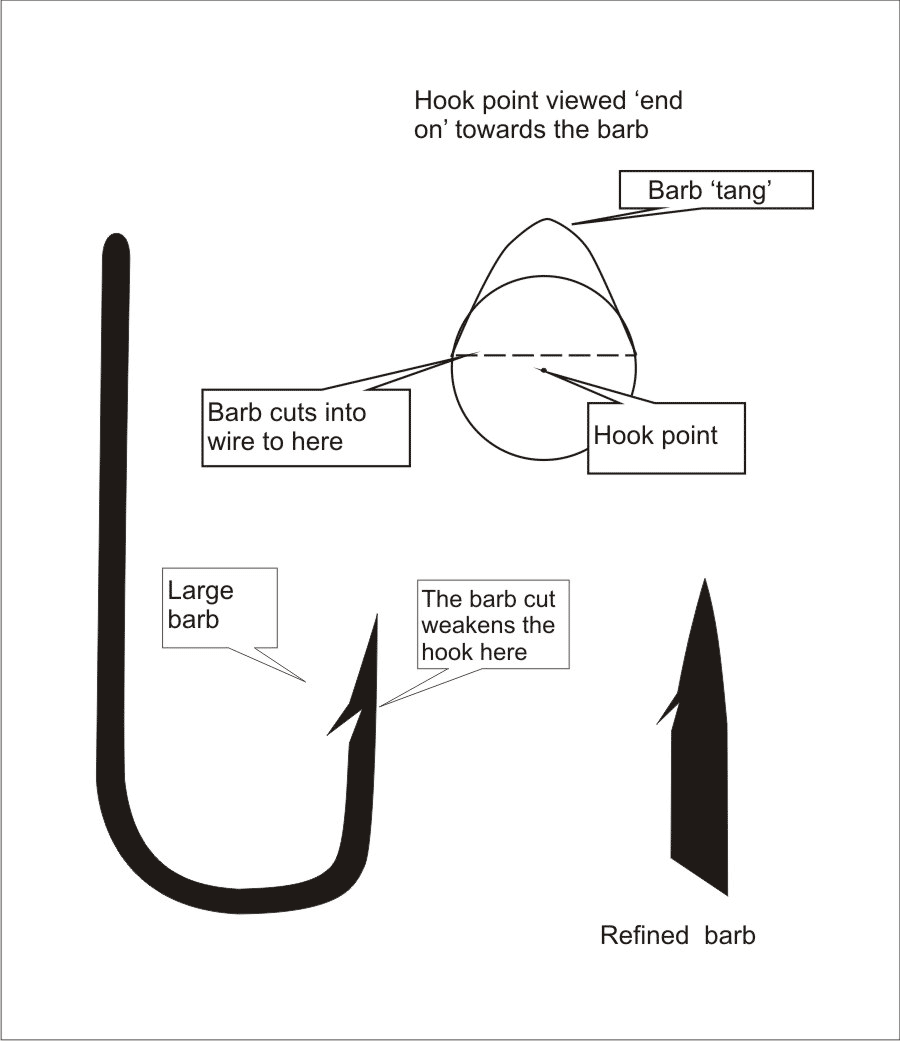Why do we use barbed hooks? And are we being let down by hook manufacturers?
If Greg Whitehead will forgive me, I’d just like to launch into this subject by quoting a recent post by him. He was responding to a forum post about a shark destined for an aquarium which had to have an operation to remove a hook point embedded in the roof of its mouth.
“Providing a hook left in a fish is not inhibiting its ability to feed then it would seem logical that the fish will continue as normal until the hook corrodes away. Let’s face it, we don’t catch all that many fish with hooks in them (on wild venues – no idea about commercials), therefore those fish that do end up with hooks left in them either lose them fairly quickly or get killed by them. Seeing as we don’t tend to see lots of dead fish on intensively-fished venues like Throop and The Royalty, amongst others, I think we can safely say that leaving hooks in fish doesn’t do them too much harm. Deep-hooking fish is what I think we need to avoid one way or the other.”
I have massive respect for Greg, and he was right about the majority of fish hooked in the UK. Here, we have a tradition of using very light tackle; as light as possible to do the job. Not the case in many other places, where they use huge stainless hooks with rank barbs.
I wrote my original – and admittedly inflammatory – post on this thread to stimulate this debate. The central point was that we, as caring anglers, should be looking much more closely at hook design. To some extent, we have, with Whisker Barbs and the like available to buy. You don’t find these anywhere but Europe, as far as I can see.
I am someone who has a great deal of confidence in barbless hooks though not so much that I would fish with them all of the time. It’s horses for courses; trout fall off barbless hooks quite easily. Barbed hooks are useful – essential, even.
But I’m not exactly presented with massive choice of hook barb designs. It’s my view that we NEVER need anything bigger than a Whisker Barb on a hook.
Typical modern hook
Hooks didn’t always have barbs. The barb on a hook was added pre-angling to prevent fish on set lines escaping. In angling, we can maintain pressure on the hookhold, so we need barbs a lot less. How much less is what we need to know.
We need a barb to make sure that the hook doesn’t fall out on the (rare and brief) occasion when the line slackens. On the flip side of the coin, we have a need to remove the hook quickly, causing as little damage as possible to the fish.
So, as anglers, we need to decide which is our priority. Personally, my priority is the latter; the fish’s welfare. I could stomach the occasional loss of a fish, which would probably be as much to do with poor angling technique as small barbs.
There is also a third factor, and one which deserves far more attention from hook designers. It is this; how much does the barb size and design influence penetration of the hook point? The diagram (with apologies to better artists) tries to show what I mean; the barb increases significantly the size of hole it needs to embed the hook properly.
I know from my own experiments that a float rod, for example, can exert only a few ounces of pressure at the hook, at best. So the amount of pressure needed to set the hook is critical. Smaller barbs mean, in practice, more fish securely hooked. Somewhere between the small barb’s reduced ability to keep the hook in place and the big barb’s reduced penetration there is a compromise. We are a long way off finding out what that compromise is.
In the meantime, Drennan’s Whisker Barb should, in my view, be the ‘norm’ and the other manufacturers should be looking very seriously at whether, through bad design, they are not only letting anglers down, but fish welfare too.
Which brings me back to Greg’s point; fish can and do shed hooks that have been left in them. If we ensured that the barb is a small as possible, the chances of this happening would be significantly better.
| Opinion Piece |
|
It’s true, we all have the chance to voice an opinion on the forum, but the forum is read by only a fraction of those members who read the editorial part of the site. If you have an interesting opinion, and want it read by the maximum number of visitors to FishingMagic, then this is the place for it. The debate will still continue on the forum just the same, but it gets a hell of a bigger kickstart when it begins life on the front page. If you have an interesting opinion about anything to do with fish or fishing then send it to me at graham@fishingmagic.com. Make it at least 500 words and a maximum of 1500, with an image or two where appropriate. |













